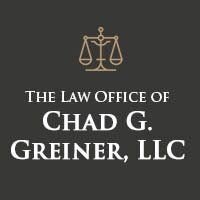Best Domestic Violence Lawyers in United States
Share your needs with us, get contacted by law firms.
Free. Takes 2 min.
Free Guide to Hiring a Family Lawyer
Or refine your search by selecting a city:
List of the best lawyers in United States
About Domestic Violence Law in United States
Domestic violence in the United States refers to abusive behaviors used by one partner to exert power and control over another within an intimate relationship. These behaviors can be physical, emotional, psychological, sexual, or economic in nature. Domestic violence is considered a serious crime and is governed by both federal and state laws with varying definitions and penalties. At a federal level, the Violence Against Women Act (VAWA) provides legal frameworks and resources to combat such violence, though each state has its specific statutes and protective measures in place to address domestic violence incidents.
Why You May Need a Lawyer
Seeking legal advice is essential in the following situations involving domestic violence:
- When seeking a protective or restraining order to ensure personal safety.
- If facing criminal charges related to domestic violence, either as a victim or accused.
- To secure custody of children or modify custody arrangements due to domestic violence concerns.
- When pursuing divorce or separation under circumstances involving domestic violence.
- If needing legal advice on immigration issues possibly affected by VAWA stipulations.
- To understand and navigate the rights and duties involved in such cases, potentially influencing housing or employment.
Local Laws Overview
Domestic violence laws can significantly vary by state, but common provisions include:
- Protection Orders: Most states allow victims to seek civil protection or restraining orders against the abuser.
- Criminal Penalties: Domestic violence charges can lead to fines, jail time, mandatory counseling, and community service.
- Mandatory Arrest Policies: Some states have mandatory arrest policies if the police have reasonable belief that domestic violence has occurred.
- Victim Compensation: Various states offer compensation programs covering medical and counseling expenses for victims.
- Court Procedures: Specialized courts or dockets often handle these cases to ensure appropriate attention and sensitivity.
Frequently Asked Questions
What qualifies as domestic violence?
Domestic violence encompasses physical harm, emotional abuse, threats, stalking, and other behaviors intended to control or intimidate a partner within an intimate relationship.
How can I obtain a restraining order?
You can file a petition for a restraining order at your local courthouse. It typically involves completing forms detailing the abuse and attending a court hearing.
What should I do if I'm falsely accused of domestic violence?
Consult a lawyer immediately to understand your rights and prepare a defense. Gather any evidence that may support your case.
Can domestic violence affect child custody decisions?
Yes, courts consider domestic violence as a critical factor in custody decisions to prioritize children's safety and well-being.
What is the penalty for a domestic violence conviction?
Penalties can range from fines and probation to incarceration. The severity often depends on the nature of the crime and state-specific laws.
Are there resources available for male victims of domestic violence?
Yes, several resources, shelters, and hotlines are available for male victims, recognizing that domestic violence affects all genders.
How long does a protective order last?
The duration varies by state and can range from a few months to several years. Extensions may be requested if necessary.
Can a protective order include my children?
Yes, protective orders can cover children and other family members if they're deemed at risk.
What happens if the abuser violates a protective order?
Violating a protective order is a criminal offense that can result in arrest and additional charges against the abuser.
How can I ensure my confidentiality when seeking help?
Many legal and advocacy services offer confidential consultations, and you can request confidentiality when contacting hotlines or shelters.
Additional Resources
Consider reaching out to these organizations for support and guidance:
- The National Domestic Violence Hotline: Provides 24/7 confidential support with resources and information.
- Legal Aid Organizations: Offer pro bono legal assistance or sliding-scale services for those in need.
- Local Shelters and Support Groups: Provide safe housing and support services for survivors.
- The National Coalition Against Domestic Violence: Provides advocacy and support materials.
- State-specific Domestic Violence Councils: Offer tailored resources including legal and counseling services.
Next Steps
If you need legal assistance, consider taking the following steps:
- Contact an Attorney: Seek a lawyer who specializes in family or criminal law, specifically dealing with domestic violence.
- Document Incidents: Keep records of any incidents of violence, including dates, locations, and details of the abuse.
- Reach Out for Support: Connect with local or national domestic violence hotlines and organizations for immediate guidance.
- Plan Safety: Develop a safety plan that includes secure housing and protection measures while legal proceedings are ongoing.
- Attend All Hearings: Be present at all court hearings related to your case to ensure your interests are effectively represented.
Lawzana helps you find the best lawyers and law firms in United States through a curated and pre-screened list of qualified legal professionals. Our platform offers rankings and detailed profiles of attorneys and law firms, allowing you to compare based on practice areas, including Domestic Violence, experience, and client feedback.
Each profile includes a description of the firm's areas of practice, client reviews, team members and partners, year of establishment, spoken languages, office locations, contact information, social media presence, and any published articles or resources. Most firms on our platform speak English and are experienced in both local and international legal matters.
Get a quote from top-rated law firms in United States — quickly, securely, and without unnecessary hassle.
Disclaimer:
The information provided on this page is for general informational purposes only and does not constitute legal advice. While we strive to ensure the accuracy and relevance of the content, legal information may change over time, and interpretations of the law can vary. You should always consult with a qualified legal professional for advice specific to your situation.
We disclaim all liability for actions taken or not taken based on the content of this page. If you believe any information is incorrect or outdated, please contact us, and we will review and update it where appropriate.
Browse domestic violence law firms by state in United States
Refine your search by selecting a state.













